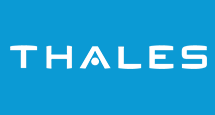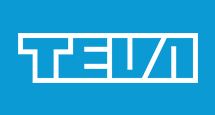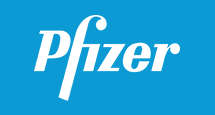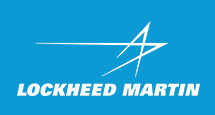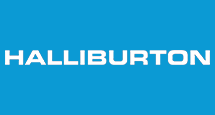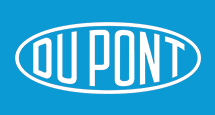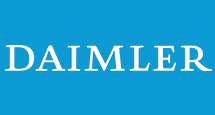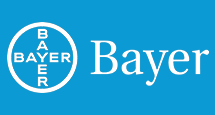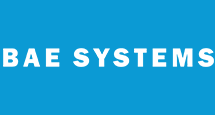Visiongain Publishes Precision Cancer Diagnostic Test Market Report 2024-2034
17 January 2024
Visiongain has published a new report entitled Precision Cancer Diagnostic Test Market Report 2024-2034: Forecasts by Products & Services (Products, Services), by Test Type (Cancer Imaging (Computed Tomography, Magnetic Resonance Imaging, Digital & Analog Mammography, Positron Emission Tomography, Digital Breast Tomosynthesis, Molecular Breast Imaging, Others), Molecular Cancer Testing (Polymerase Chain Reaction, Next-Generation Sequencing, Liquid Biopsies, Immunohistochemistry, Fluorescence In Situ Hybridization, Others), Tumour Marker Immunoassays, POC Colon Cancer Tests & Others), by Application (Breast Cancer, Lung Cancer, Colorectal Cancer, Melanoma, Pancreatic Cancer, Other), by Biopsy Method (Liquid Biopsy, Tissue Biopsy), by End-user (Diagnostic Laboratories, Hospitals, Cancer Centers and Clinics, Research Institutions) AND Regional and Leading National Market Analysis PLUS Analysis of Leading Companies AND COVID-19 Impact and Recovery Pattern Analysis.
The precision cancer diagnostic test market was valued at US$10,623.3 million in 2023 and is projected to grow at a CAGR of 16.1% during the forecast period 2024-2034.
New Product and Service Launches is Propelling the Market Growth
Several companies, including Foundation Medicine, Guardant Health, Roche, Illumina, Natera, and Qiagen, are at the forefront of the precision cancer diagnostic test market. These pioneers are developing diagnostic tools and therapies aligned with the principles of personalized diagnostics, driving the ongoing demand for precision cancer diagnostics and shaping the future of cancer diagnosis and treatment. Notably, companies like Halo Precision Diagnostics contribute by providing early detection and personalized diagnostic test kits for prostate and breast cancer.
The collaboration between healthcare entities and precision diagnostic companies is evident in initiatives like the partnership between The Royal Marsden NHS Foundation Trust and Guardant Health in 2023 for evaluating circulating tumor DNA (ctDNA) to guide chemotherapy treatment regimes. This collaboration is focused on integrating precision diagnostic technologies into clinical practice, with the overarching goal of revolutionizing cancer care through personalized and targeted treatment approaches. Such initiates propels the overall demand for precision cancer diagnostics products and services. Additionally, governmental initiatives and awareness programs focused on assessing cancer risk in early stages are anticipated to further boost the adoption of personalized diagnostics. In 2023, Roche France announced a partnership with Foundation Medicine and the Institute Gustave Roussy to offer in-house liquid biopsy-based genomic testing to the French population, showcasing the global efforts in advancing precision cancer diagnostics. The European Commission's funding of the DeteCTCs project, aimed at developing CellMate, a liquid biopsy assay for monitoring cancer progression, detecting minimal residual disease, and guiding treatment modifications, highlights the commitment to advancing personalized cancer care.
How has COVID-19 had a Mixed Impact on the Precision Cancer Diagnostic Test Market?
The impact of COVID-19 on the precision cancer diagnostic test market has yielded a mixed landscape, marked by both challenges and opportunities. On the positive side, the pandemic has accelerated the adoption of telemedicine, offering a platform for remote consultations and discussions of diagnostic test results. This shift has not only provided a convenient avenue for patients but has also facilitated healthcare professionals' access to critical information, enhancing the integration of precision cancer diagnostics into remote healthcare practices.
Moreover, the global health crisis has heightened the emphasis on personalized medicine. As the medical community navigates the challenges posed by COVID-19, there has been a growing recognition of the importance of tailoring healthcare approaches to individual patients. Precision cancer diagnostic tests, which play a pivotal role in identifying specific genetic markers and molecular profiles, align with the principles of personalized medicine. This increased focus on tailoring treatments to the unique characteristics of each patient has, in turn, contributed to a sustained demand for precision cancer diagnostics, as healthcare systems strive to enhance patient outcomes amidst the complexities introduced by the pandemic.
How will this Report Benefit you?
Visiongain’s 370-page report provides 135 tables and 235 charts/graphs. Our new study is suitable for anyone requiring commercial, in-depth analyses for the precision cancer diagnostic test market, along with detailed segment analysis in the market. Our new study will help you evaluate the overall global and regional market for Precision Cancer Diagnostic Test. Get financial analysis of the overall market and different segments including scale of operation, size of contract manufacturer, and source of stem cells, type of stem cells, and end-user and capture higher market share. We believe that there are strong opportunities in this fast-growing precision cancer diagnostic test market. See how to use the existing and upcoming opportunities in this market to gain revenue benefits in the near future. Moreover, the report will help you to improve your strategic decision-making, allowing you to frame growth strategies, reinforce the analysis of other market players, and maximise the productivity of the company.
What are the Current Market Drivers?
Advent of Next-Generation Sequencing (NGS) Technology Endeavors the Market Growth
The advent of next-generation sequencing (NGS) technology has revolutionized the ability to rapidly sequence the entire genome or exome of cancer cells. This approach uncovers a wealth of genetic information crucial for guiding both diagnosis and treatment decisions. NGS, as a precision medicine tool, enables the analysis of each patient's genetic profile in a customized manner, thereby enhancing cancer diagnosis and ultimately improving patient outcomes. Companies such as Igenomix, a clinical diagnostic company, exemplify this progress by offering comprehensive NGS-based diagnostic tests that examine multiple genes linked to specific cancer types, including hereditary colorectal cancer, breast and ovarian cancer, thyroid, lung, and prostate cancer. The integration of genomics and NGS into clinical oncology has proven to be a potent tool, gradually becoming the standard of care for enhancing patient prognosis. Additionally, public-private partnerships, exemplified by collaborations such as Dante Labs and the Government of Italy, are contributing to large-scale genomic research endeavors, aiming to advance the identification of new genes and biomarkers related to cancer and other disorders. Notably, initiatives such as The Cancer Genome Atlas (TCGA) project provide extensive datasets that benefit researchers worldwide.
Rising Prevalence of Cancer is Boosting the Market Growth
The precision cancer diagnostic test market is witnessing significant growth propelled by the global surge in cancer prevalence, making accurate and early diagnostic tools more essential than ever. According to statistics from the World Cancer Research Fund, over 20.0 million new cancer cases were diagnosed worldwide in 2022, and this number is projected to reach 27.5 million annually by 2040. Cancer is a leading cause of death globally, with an estimated 10 million cancer-related deaths in 2020. The prevalence of specific cancer types, such as lung and prostate cancer, varies, but high prevalence rates are observed for breast and prostate cancer. According to the American Cancer Society, around 1,918,030 new cases of cancer and 609,360 cancer-related deaths in the year 2022 in the U.S. The European Cancer Information System highlights cancer as a major public health concern in Europe, with approximately 2.7 million new cases and 1.3 million cancer-related deaths in 2020. Precision diagnostic tests play a crucial role in this scenario by identifying genetic mutations, biomarkers, and cancer characteristics, guiding personalized treatment strategies. As cancer prevalence continues to rise, these tests streamline diagnostics, reduce unnecessary procedures, and contribute to more efficient allocation of healthcare resources.
Where are the Market Opportunities?
Integration of Artificial Intelligence (AI) and Machine Learning (ML) is Expected to Boost the Market Growth
The integration of artificial intelligence (AI) and machine learning (ML) into the interpretation of diagnostic test results marks a significant advancement in the field of precision cancer diagnostics. This integration holds the potential to substantially enhance the accuracy and speed of analysing test results, ultimately leading to more efficient and effective treatment decision-making. The influence of AI and machine learning on the precision cancer diagnostics market has been profound, driven by their remarkable capabilities in improving the precision, speed, and efficiency of diagnostic processes.
AI and machine learning technologies excel in processing vast and intricate datasets, allowing them to discern subtle patterns, mutations, and anomalies that might evade detection by human analysts. In the realm of diagnostic imaging, AI-driven image analysis proves valuable in interpreting radiological scans such as MRIs and CT scans. This technology aids in pinpointing tumor locations, determining sizes, and characterizing tumours with a high degree of accuracy. Moreover, machine learning algorithms play a crucial role in analysing genomic data, facilitating the identification of specific genetic mutations and biomarkers associated with various types of cancer. Recognizing the transformative potential of AI in healthcare, government agencies worldwide have initiated programs to support AI research in the medical domain, fostering the seamless integration of AI into cancer diagnostics and paving the way for enhanced precision in diagnosis and treatment.
Competitive Landscape
The precision cancer diagnostic test market is characterized by a high degree of fragmentation, featuring numerous companies and products. In 2023, key players such as Abbott, Agilent Technologies, Inc.. Bayer AG, bioMérieux SA, F. Hoffmann-La Roche Ltd., Illumina, Inc., Myriad Genetics, Inc., QIAGEN N.V., Siemens Healthineers, and Thermo Fisher Scientific are anticipated to collectively hold a largest market share. These key industry participants have deployed diverse strategies, encompassing mergers and acquisitions, significant investments in research and development, collaborative initiatives, partnerships, regional business expansion, and the introduction of innovative products. These measures are undertaken to strengthen and elevate their positions within the market.
Recent Developments
• In October 2023, Boehringer Ingelheim and Thermo Fisher Scientific Collaborate on development of Companion Dx for Lung Cancer
• In November 2023, Abbott received U.S.FDA approval for PCR based human papilloma virus (HPV) detection assay for early diagnosis of cervical cancer in female patients. The assay will be added to Alinity m family of high risk diagnostic assays.
• In October 2023, Abbott received U.S.FDA companion diagnostics approval for RealTime IDH1 Assay for identification of myelodysplastic syndromes (MDS), a rare type of blood cancer caused by genetic mutations
• In October 2023, Qiagen and Myriad genetics entered into partnership for development of companion diagnostics test for cancer. The partnership included of development and distribution of kit based companion diagnostics based tests and assays
Notes for Editors
If you are interested in a more detailed overview of this report, please send an e-mail to contactus@visiongain.com or call +44 (0) 207 336 6100.
About Visiongain
Visiongain is one of the fastest-growing and most innovative independent media companies in Europe. Based in London, UK, Visiongain produces a host of business-to-business reports focusing on the automotive, aviation, chemicals, cyber, defence, energy, food & drink, materials, packaging, pharmaceutical and utilities sectors.
Visiongain publishes reports produced by analysts who are qualified experts in their field. Visiongain has firmly established itself as the first port of call for the business professional who needs independent, high-quality, original material to rely and depend on.


